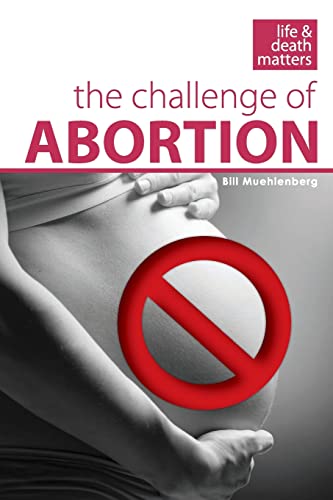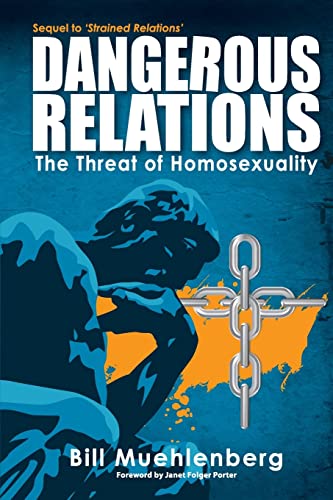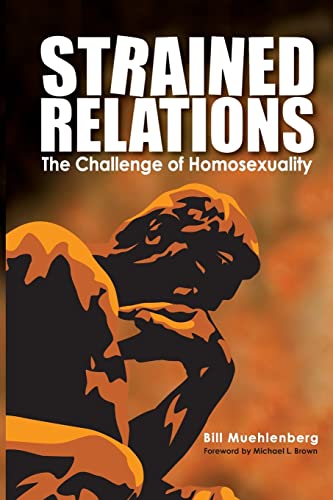10 Best 「puritan」 Books of 2025| Books Explorer
- Meet the Puritans: With a Guide to Modern Reprints
- Thomas Jefferson: A Biography of Spirit and Flesh
- The Challenge of Euthanasia (Life and Death Matters)
- The Challenge of Abortion (Life and Death Matters)
- Who Is an Evangelical?: The History of a Movement in Crisis
- Benjamin Franklin: The Religious Life of a Founding Father
- Dangerous Relations: The Threat of Homosexuality
- Baptists in America: A History
- Strained Relations: The Challenge of Homosexuality
- George Whitefield: America's Spiritual Founding Father
This encyclopedic resource provides biographical sketches of all the major Puritans as well as bibliographic summaries of their writings and work. Meet the Puritans is an important addition to the library of the layman, pastor, student and scholar.\nEndorsement 'The recent revival in interest in and commitment to the truths of Reformed theology is due in large measure to the rediscovery of Puritan literature. The Puritans of old have become the prophets for our time. This volume is a treasure for the church.' - DR. R. C. SPROUL, President of Ligonier Ministries
A revelatory new biography of Thomas Jefferson, focusing on his ethical and spiritual life\\n“Kidd’s biography may well be the best treatment of Jefferson’s religious and moral life available, and certainly it is among the few to take those two subjects seriously while carefully avoiding hagiography or anachronism. It deserves a wide readership.”—Miles Smith, National Review\\n“Set aside everything you think you know about Thomas Jefferson and religion, and read this book. This is the definitive account. It is well written, well researched, judicious, and entirely convincing.”—Timothy Larsen, Wheaton College\\nThomas Jefferson was arguably the most brilliant and inspiring political writer in American history. But the ethical realities of his personal life and political career did not live up to his soaring rhetoric. Indeed, three tensions defined Jefferson’s moral life: democracy versus slavery, republican virtue versus dissolute consumption, and veneration for Jesus versus skepticism about Christianity.\\nIn this book Thomas S. Kidd tells the story of Jefferson’s ethical life through the lens of these tensions, including an unapologetic focus on the issue where Jefferson’s idealistic philosophy and lived reality clashed most obviously: his sexual relationship with his enslaved woman Sally Hemings. In doing so, he offers a unique perspective on one of American history’s most studied figures.
There are many genuine concerns over the legalization of euthanasia. This volume lists a number of them, dealing with medical, legal, social and scientific concerns. It then looks at biblical and theological issues related to euthanasia.
There are numerous myths about abortion. This book challenges those myths from a pro-life perspective. Part 1 features medical, scientific, social and philosophical arguments, while part 2 covers biblical and theological arguments.
A leading historian of evangelicalism offers a concise history of evangelicals and how they became who they are today Evangelicalism is arguably America’s most controversial religious movement. Nonevangelical people who follow the news may have a variety of impressions about what “evangelical” means. But one certain association they make with evangelicals is white Republicans. Many may recall that 81 percent of self‑described white evangelicals voted for Donald Trump, and they may well wonder at the seeming hypocrisy of doing so. In this illuminating book, Thomas Kidd draws on his expertise in American religious history to retrace the arc of this spiritual movement, illustrating just how historically peculiar that political and ethnic definition (white Republican) of evangelicals is. He examines distortions in the public understanding of evangelicals, and shows how a group of “Republican insider evangelicals” aided the politicization of the movement. This book will be a must‑read for those trying to better understand the shifting religious and political landscape of America today.
A major new biography, illuminating the great mystery of Benjamin Franklin’s faith Renowned as a printer, scientist, and diplomat, Benjamin Franklin also published more works on religious topics than any other eighteenth-century American layperson. Born to Boston Puritans, by his teenage years Franklin had abandoned the exclusive Christian faith of his family and embraced deism. But Franklin, as a man of faith, was far more complex than the “thorough deist” who emerges in his autobiography. As Thomas Kidd reveals, deist writers influenced Franklin’s beliefs, to be sure, but devout Christians in his life—including George Whitefield, the era’s greatest evangelical preacher; his parents; and his beloved sister Jane—kept him tethered to the Calvinist creed of his Puritan upbringing. Based on rigorous research into Franklin’s voluminous correspondence, essays, and almanacs, this fresh assessment of a well-known figure unpacks the contradictions and conundrums faith presented in Franklin’s life.
Dangerous Relations examines how the homosexual agenda is changing everything. Since writing my first volume on this issue, the attacks on faith, freedom and family have especially taken off, with new examples appearing almost on a daily basis all around the Western world. And so too have the demands of other activist minority groups, emboldened as they are by the successes of the homosexual activists. Now all sorts of other fringe sexualities are being championed by various activist groups. While my first volume covered just about all the bases in the homosexual debate, much more can always be said. This follow-up volume to Strained Relations will act as a supplement to what was presented there, and include new information and material to further round out my case. Chapter One of Dangerous Relations looks at the many cases of homosexual intolerance of anyone and anything that dares to resist their radical and militant agenda. And I can say right now that as soon as this book goes to the printers, it will already be out of date in this area. There will be many dozens - perhaps hundreds - of new cases of anti-faith and anti-family bigotry which will have occurred in the short period of time needed to produce this book at the printers. Chapter Two documents how families, parenthood and family identity all suffer as we allow the institutions of marriage and family to be redefined and recreated in the image of the activists. Children in particular suffer in this brave new world of social engineering. Chapter Three offers several prime examples of the growing problem of the slippery slope. More and more activists are now very publicly and passionately pushing for paedophilia, polyamory, incest rights, and even bestiality, buoyed by the successes of the homosexual activists, and following on with the very same arguments and rationale. Chapter Four provides some much-needed background information to head off some of the common criticisms made by the activists and their supporters. Specifically it will rebuff the silly notion that heterosexual marriage is just a recent invention, and that marriage has always been a wildly fluctuating and changing institution with no clear boundaries at all. Thus it takes on the oft-heard myth that the two-parent family is basically just an invention of the 1950s, and that families have - and can - come in any shape and size you want them to. Chapter Five discusses the importance of fathers and mothers and demonstrates how both are absolutely vital for the optimal raising of children. Advocates for homosexual adoption rights need to let this data speak, and not allow emotional wants and desires to trump the wellbeing of children. I conclude my book with three appendices. The first offers a recommended reading list for those who want to take these matters further. Then I feature two appendices containing the moving testimonies of a former homosexual and a former lesbian.
The Puritans called Baptists "the troublers of churches in all places" and hounded them out of Massachusetts Bay Colony. Four hundred years later, Baptists are the second-largest religious group in America, and their influence matches their numbers. They have built strong institutions, from megachurches to publishing houses to charities to mission organizations, and have firmly established themselves in the mainstream of American culture. Yet the historical legacy of outsider status lingers, and the inherently fractured nature of their faith makes Baptists ever wary of threats from within as well as without.In Baptists in America, Thomas S. Kidd and Barry Hankins explore the long-running tensions between church, state, and culture that Baptists have shaped and navigated. Despite the moment of unity that their early persecution provided, their history has been marked by internal battles and schisms that were microcosms of national events, from the conflict over slavery that divided North from South to the conservative revolution of the 1970s and 80s. Baptists have made an indelible impact on American religious and cultural history, from their early insistence that America should have no established church to their place in the modern-day culture wars, where they frequently advocate greater religious involvement in politics. Yet the more mainstream they have become, the more they have been pressured to conform to the mainstream, a paradox that defines--and is essential to understanding--the Baptist experience in America.Kidd and Hankins, both practicing Baptists, weave the threads of Baptist history alongside those of American history. Baptists in America is a remarkable story of how one religious denomination was transformed from persecuted minority into a leading actor on the national stage, with profound implications for American society and culture.
Strained Relations: The Challenge of Homosexuality is written by American-born, Australian-based veteran family researcher and activist Bill Muehlenberg. This comprehensive, detailed and thoroughly documented volume deals with every aspect of the homosexual debate, including lengthy chapters on homosexual marriage and adoption rights. The book also examines the biblical and theological material on this subject, rebutting the various theories of the theological revisionists. With over 700 footnotes, this is the most extensively researched and referenced volume on this topic available in Australia. Yet much of the book features international research and data as well, making it fully of use and of value to anyone from around the globe concerned about this issue.
An engaging, balanced, and penetrating narrative biography of the charismatic eighteenth-century American evangelist In the years prior to the American Revolution, George Whitefield was the most famous man in the colonies. Thomas Kidd’s fascinating new biography explores the extraordinary career of the most influential figure in the first generation of Anglo-American evangelical Christianity, examining his sometimes troubling stands on the pressing issues of the day, both secular and spiritual, and his relationships with such famous contemporaries as Benjamin Franklin, Jonathan Edwards, and John Wesley. Based on the author’s comprehensive studies of Whitefield’s original sermons, journals, and letters, this excellent history chronicles the phenomenal rise of the trailblazer of the Great Awakening. Whitefield’s leadership role among the new evangelicals of the eighteenth century and his many religious disputes are meticulously covered, as are his major legacies and the permanent marks he left on evangelical Christian faith. It is arguably the most balanced biography to date of a controversial religious leader who, though relatively unknown three hundred years after his birth, was a true giant in his day and remains an important figure in America’s history.









